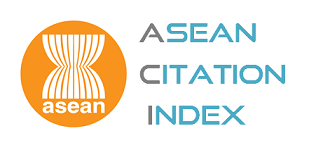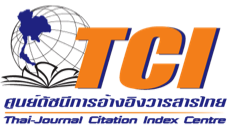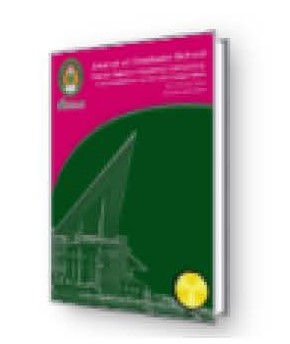คู่มือการจัดการเรียนรู้เพศศึกษา ตามแนวคิดการสอนทักษะชีวิต ร่วมกับหลักแนวคิดโยนิโสมนสิการ เพื่อเสริมสร้างการคิดวิเคราะห์ ความรับผิดชอบต่อสังคมและผลสัมฤทธิ์ทางการเรียน กลุ่มสาระการเรียนรู้สุขศึกษาและพลศึกษา ของนักเรียนชั้นประถมศึกษาปีที่ 6
Abstract
คู่มือการจัดการเรียนรู้เพศศึกษา ตามแนวคิดการสอนทักษะชีวิต ร่วมกับหลักแนวคิดโยนิโสมนสิการ เพื่อเสริมสร้างการคิดวิเคราะห์ ความรับผิดชอบต่อสังคมและผลสัมฤทธิ์ทางการเรียน กลุ่มสาระการเรียนรู้สุขศึกษาและพลศึกษา ของนักเรียนชั้นประถมศึกษาปีที่ 6
MANUAL FOR SEX EDUCATION LEARNING MANAGEMENT BASED ON TEACHING LIFE SKILL IDEAS AND YONISOMANASIKAN TO ENHANCE ANALYTICAL THINKING, SOCIAL RESPONSIBILITY, AND LEARNING ACHIEVEMENT OF THE LEARNING SUBSTANCE GROUP OF HEALTH EDUCATION AND PHYSICAL EDUCATION OF PRATHOM SUKSA 6 STUDENTS
บทคัดย่อ
การวิจัยแบบกึ่งทดลอง (Quasi – experimental Design) เพื่อพัฒนาคู่มือการจัดการเรียนรู้เพศศึกษา ตามแนวคิดการสอนทักษะชีวิต ร่วมกับหลักแนวคิดโยนิโสมนสิการ เพื่อเสริมสร้างการคิดวิเคราะห์ ความรับผิดชอบต่อสังคม และผลสัมฤทธิ์ทางการเรียน กลุ่มสาระการเรียนรู้สุขศึกษาและพลศึกษา ของนักเรียนชั้นประถมศึกษาปีที่ 6 มีความมุ่งหมายเพื่อ 1) เพื่อศึกษาดัชนีประสิทธิผล (E.I.) ของคู่มือการจัดการเรียนรู้ 2) เปรียบเทียบการคิดวิเคราะห์ ก่อนเรียนและหลังเรียน
3) เปรียบเทียบ ความรับผิดชอบต่อสังคม ก่อนเรียนและหลังเรียน 4) เปรียบเทียบผลสัมฤทธิ์ทางการเรียน ก่อนเรียนและหลังเรียน 5) เพื่อเปรียบเทียบ การคิดวิเคราะห์ ความรับผิดชอบต่อสังคม และผลสัมฤทธิ์ทางการเรียน ของนักเรียนที่มี
ความฉลาดทางอารมณ์ สูง ปานกลาง และต่ำ กลุ่มตัวอย่าง เป็นนักเรียนชั้นประถมศึกษาปีที่ 6 ภาคเรียนที่ 2 ปีการศึกษา 2556 โรงเรียนบ้านตาดภูวงสำนักงานเขตพื้นที่การศึกษาประถมศึกษา สกลนคร เขต 2 จำนวนนักเรียน 30 คน เครื่องมือที่ใช้
ในการวิจัยประกอบด้วย 1) คู่มือการจัดการเรียนรู้เพศศึกษา ตามแนวคิดการสอนทักษะชีวิต ร่วมกับหลักแนวคิดโยนิโสมนสิการ 2) แบบวัดการคิดวิเคราะห์ 3) แบบวัดความรับผิดชอบต่อสังคม 4) แบบผลสัมฤทธิ์ทางการเรียน 5) แบบวัดความฉลาดทางอารมณ์ สถิติที่ใช้ในการวิเคราะห์ข้อมูล ได้แก่ ค่าเฉลี่ย ส่วนเบี่ยงเบนมาตรฐาน ค่าดัชนีประสิทธิผล (Effectiveness Index : E.I.) สถิติทดสอบค่าที (t – test for Dependent Samples) การวิเคราะห์ความแปรปรวนพหุคูณ (MANOVA) การวิเคราะห์ความแปรปรวนร่วมพหุคูณ (MANCOVA) การวิเคราะห์ความแปรปรวนทางเดียว (ANOVA) และการวิเคราะห์ความแปรปรวนร่วมทางเดียว (ANCOVA)
ผลการวิจัยพบว่า
1. ดัชนีประสิทธิผลของคู่มือการจัดการเรียนรู้เพศศึกษา ตามแนวคิดการสอนทักษะชีวิต ร่วมกับหลักแนวคิดโยนิโสมนสิการ นักเรียนมีความก้าวหน้าในภาพรวมเท่ากับ 0.75 หรือ คิดเป็นร้อยละ 75 และเมื่อจำแนกตามตัวแปร พบว่า การคิดวิเคราะห์ เพิ่มขึ้น 0.72 หรือ คิดเป็นร้อยละ 72 ความรับผิดชอบต่อสังคมเพิ่มขึ้น 0.76 หรือคิดเป็นร้อยละ 76 และผลสัมฤทธิ์ทางการเรียนเพิ่มขึ้น 0.78 หรือคิดเป็นร้อยละ 78 ซึ่งสูงกว่าเกณฑ์มาตรฐานที่กำหนดไว้
2. การคิดวิเคราะห์ ของนักเรียนหลังได้รับการเรียนการสอนด้วย คู่มือการจัดการเรียนรู้เพศศึกษา ตามแนวคิดการสอนทักษะชีวิต ร่วมกับหลักแนวคิดโยนิโสมนสิการ หลังเรียนสูงกว่าก่อนเรียนอย่างมีนัยสำคัญทางสถิติที่ระดับ .05
3. ความรับผิดชอบต่อสังคม ของนักเรียนหลังได้รับการเรียนการสอน ด้วยคู่มือการจัดการเรียนรู้เพศศึกษา ตามแนวคิดการสอนทักษะชีวิต ร่วมกับหลักแนวคิดโยนิโสมนสิการ หลังเรียนสูงกว่าก่อนเรียน อย่างมีนัยสำคัญทางสถิติที่ระดับ .05
4. ผลสัมฤทธิ์ทางการเรียนของนักเรียน ของนักเรียนหลังได้รับการเรียนการสอนด้วยคู่มือการจัดการเรียนรู้เพศศึกษา ตามแนวคิดการสอนทักษะชีวิต ร่วมกับหลักแนวคิดโยนิโสมนสิการ หลังเรียนสูงกว่าก่อนเรียน อย่างมีนัยสำคัญทางสถิติที่ระดับ .05
5. การคิดวิเคราะห์ ความรับผิดชอบต่อสังคม และผลสัมฤทธิ์ทางการเรียน ของนักเรียนที่มีความฉลาดทางอารมณ์ต่างกัน หลังได้รับการเรียนการสอนด้วยคู่มือการจัดการเรียนรู้เพศศึกษา ตามแนวคิดการสอนทักษะชีวิต ร่วมกับหลักแนวคิดโยนิโสมนสิการ ตัวแปรความฉลาดทางอารมณ์ มีปฏิสัมพันธ์กัน ส่งผลต่อการคิดวิเคราะห์ ความรับผิดชอบต่อสังคมและผลสัมฤทธิ์ทางการเรียน แตกต่างกันอย่างมีนัยสำคัญทางสถิติที่ระดับ .05
ABSTRACT
A quasi-experimental research. The aim of the research To develop a guide to the curriculum of sex education. Based on the concept of teaching life skills Together with the main concept Yonisomanasikara to strengthen critical thinking Social Responsibility And Achievement Group learning, health and physical education. Students of grade 6, with the aim to 1) study the effectiveness index (EI) of the Guide to the curriculum 2) Comparison of analytical thinking. Before and after learning 3) compares social responsibility. Before and after learning 4) compare student achievement. Before and after learning 5) to compare. Analytical Thinking Social Responsibility And Achievement Of students with high, medium and low emotional intelligence. The subjects were 30 Prathom Suksa 6 students who enrolled in the second semester of 2013 academic year at Ban Tadphuwong School under the Office of Sakon Nakhon Primary Educational Service Area 2. The instruments included 1) the manual for managing sex education based on teaching life skill ideas and Yonisomanasikan, 2) the form to measure the students’ analytical thinking, 3) the form to evaluate the students’ Social Responsibility. 4) an achievement test,and 5) the test to assess the students’ emotional intelligence. The statistics employed for data analysis were mean, standard deviation, effectiveness index, t-test (Dependent Samples), MANOVA, MANCOVA, ANOVA, and ANCOVA.
The results of the study were as follow
1. The index effectiveness of A Manual for Applying Learning Activities in the Learning Substance of Health Education and Physical Education Based on Life Skill Ideas In Conjunction with Yonisomanasikan. Overview progression equal. 0.75 and was classified as a variable Found that critical thinking increased 0.72. Their social responsibility increases 0.76. And achievement increased 0.78. Which is higher than the standard set.
2. The Analytical Thinking of the Students in Prathom Suksa 6 studied by A Manual for Applying Learning Activities in the Learning Substance of Health Education and Physical Education Based on Life Skill Ideas In Conjunction with Yonisomanasikan Affecting Analytical Thinking, Social Responsibility and Learning Achievements For Prathom Suksa 6. After studying was higher than before studying statistically significant at 0.05 level.
3. The Social Responsibility of the Students in Prathom Suksa 6 studied by A Manual for Applying Learning Activities in the Learning Substance of Health Education and Physical Education Based on Life Skill Ideas In Conjunction with Yonisomanasikan Affecting Analytical Thinking, Social Responsibility and Learning Achievements For Prathom Suksa 6. After studying was higher than before studying statistically significant at 0.05 level.
4. The Learning Achievement of the Students in Prathom Suksa 6 studied by A Manual for Applying Learning Activities in the Learning Substance of Health Education and Physical Education Based on Life Skill Ideas In Conjunction with Yonisomanasikan Affecting Analytical Thinking, Social Responsibility and Learning Achievements For Prathom Suksa 6. After studying was higher than before studying statistically significant at 0.05 level.
5. The Analytical Thinking, the social responsibility, the achievement Of students with emotional intelligence as well of the Students in Prathom Suksa 6 studied by A Manual for Applying Learning Activities in the Learning Substance of Health Education and Physical Education Based on Life Skill Ideas In Conjunction with Yonisomanasikan Affecting Analytical Thinking, Social Responsibility and Learning Achievements For Prathom Suksa 6. Emotional intelligence variables interact affect analytical thinking. Social responsibility and academic achievement. Differences are statistically significant at the .05 level.
Downloads
How to Cite
Issue
Section
License
บทความทุกบทความที่ตีพิมพ์ในวารสารบัณฑิตศึกษา มหาวิทยาลัยราชภัฏสกลนคร ถือว่าเป็นลิขสิทธิ์ของบัณฑิตวิทยาลัย มหาวิทยาลัยราชภัฏสกลนคร









